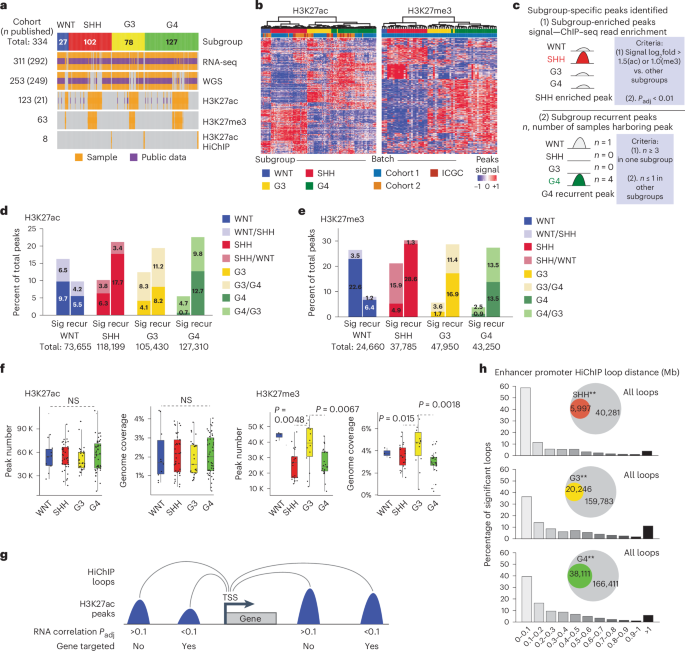ZIC1 is a context-dependent medulloblastoma driver in the rhombic lip
IF 31.7
1区 生物学
Q1 GENETICS & HEREDITY
引用次数: 0
Abstract
Transcription factors are frequent cancer driver genes, exhibiting noted specificity based on the precise cell of origin. We demonstrate that ZIC1 exhibits loss-of-function (LOF) somatic events in group 4 (G4) medulloblastoma through recurrent point mutations, subchromosomal deletions and mono-allelic epigenetic repression (60% of G4 medulloblastoma). In contrast, highly similar SHH medulloblastoma exhibits distinct and diametrically opposed gain-of-function mutations and copy number gains (20% of SHH medulloblastoma). Overexpression of ZIC1 suppresses the growth of group 3 medulloblastoma models, whereas it promotes the proliferation of SHH medulloblastoma precursor cells. SHH medulloblastoma ZIC1 mutants show increased activity versus wild-type ZIC1, whereas G4 medulloblastoma ZIC1 mutants exhibit LOF phenotypes. Distinct ZIC1 mutations affect cells of the rhombic lip in diametrically opposed ways, suggesting that ZIC1 is a critical developmental transcriptional regulator in both the normal and transformed rhombic lip and identifying ZIC1 as an exquisitely context-dependent driver gene in medulloblastoma. Analysis of medulloblastomas in humans and mice shows that the functional consequences of ZIC1 mutations are exquisitely dependent on the cells of origin that give rise to different subgroups of medulloblastoma.


ZIC1在菱形唇中是一个环境依赖的髓母细胞瘤驱动因子
转录因子是常见的癌症驱动基因,基于精确的起源细胞表现出明显的特异性。我们证明,ZIC1在第4组(G4)髓母细胞瘤中通过反复发生的点突变、亚染色体缺失和单等位基因表观遗传抑制(60%的G4髓母细胞瘤)表现出功能丧失(LOF)的体细胞事件。相比之下,高度相似的SHH髓母细胞瘤表现出截然相反的功能获得突变和拷贝数增益(占SHH髓母细胞瘤的20%)。ZIC1过表达抑制3组成神经管细胞瘤模型的生长,而促进SHH成神经管细胞瘤前体细胞的增殖。SHH髓母细胞瘤ZIC1突变体比野生型ZIC1表现出更高的活性,而G4髓母细胞瘤ZIC1突变体表现出LOF表型。不同的ZIC1突变以截然相反的方式影响斜形唇细胞,这表明ZIC1在正常和转化的斜形唇中都是一个关键的发育转录调节因子,并确定ZIC1是髓母细胞瘤中一个精细的环境依赖驱动基因。
本文章由计算机程序翻译,如有差异,请以英文原文为准。
求助全文
约1分钟内获得全文
求助全文
来源期刊

Nature genetics
生物-遗传学
CiteScore
43.00
自引率
2.60%
发文量
241
审稿时长
3 months
期刊介绍:
Nature Genetics publishes the very highest quality research in genetics. It encompasses genetic and functional genomic studies on human and plant traits and on other model organisms. Current emphasis is on the genetic basis for common and complex diseases and on the functional mechanism, architecture and evolution of gene networks, studied by experimental perturbation.
Integrative genetic topics comprise, but are not limited to:
-Genes in the pathology of human disease
-Molecular analysis of simple and complex genetic traits
-Cancer genetics
-Agricultural genomics
-Developmental genetics
-Regulatory variation in gene expression
-Strategies and technologies for extracting function from genomic data
-Pharmacological genomics
-Genome evolution
 求助内容:
求助内容: 应助结果提醒方式:
应助结果提醒方式:


